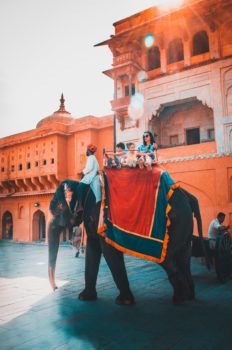What is the Bundeli Dialect? Posted by Nicole Herbert Dean on May 26, 2021 in Culture, Hindi Language, History
Movies and Dialects
I recently watchedदेखा a delightful Hindi Bollywood movieचलचित्र on Netflix. The movie, Motichoor Chaknachoor, was filmed फिल्माया गया था in the city of Bhopal, Madhya Pradesh. My current favorite वर्तमान पसंदीदा Bollywood actor, Nawazuddin Siddiqui was the main actor मुख्य अभिनेता, in this comedy. Nawazuddin is a character actor चरित्र अभिनेता who has featured in many amazing serious roles, therefore इसलिए this was an off character, a role for him.
At first, it started normally सामान्य रूप से and I could understand Hindi but then I noticed देखा there were words that were strange यह अजीब था in sound and not Hindi. For example, उदाहरण के लिए, I heard the actor say, का ‘ka’ instead of क्या ‘Kya’ for ‘what’ and कितें ‘kiten’ instead of कहाँ ‘kahan’ for ‘where’. I thought maybe it is Punjabi. I paused the movie मैं फिल्म रुका and turned to Google. I discovered पता चला they were speaking बोलनेवाला in or Bundeli.
The Rajput Connection
Bundeli is a dialect उपभाषा of Western Hindi. The natives of Bundelkhand speak this language. Bundelkhand is inhabited निवास by the Bendelas which is a clan वंश of Rajputs. It is spoken यह बोला जाता है in Rajasthan, Madhya Pradesh, Uttar Pradesh and certain कोई एक parts of Bihar.
As I listened in for more Bundeli words during के दौरान the movie I made a list to compare तुलना करना to Hindi. For example, the girl is मोडी ‘mori’ with a rolled ‘d’ sound and मोडा ‘boy’ is ‘mor’. I wondered if these words originated from the words for peacock मोर and peahen मोरनी?
This language has 10 vowels स्वर and 27 consonants व्यंजन compared to the 14 vowels and 33 consonants of Devanagari. Bundeli nouns संज्ञा and pronouns सर्वनाम are also different अलग from Hindi.
Bundeli does sound a little like Bengali in that its vowel sounds are more rounded गोलाकार than standard Hindi. It is not difficult कठिन to understand as the main words मुख्य शब्द in a sentence are in Hindi with a few nouns differing.
For example, they would say बस्तु ‘bastu’ instead of वस्तु ‘vastu’ trading the ‘v’ sound for a ‘b’ sound and सोमबंध ‘sombandh’ instead of संमबंध ‘sumbandh’.
Pronouns in Bundeli
- I मैं Mein, हम hum
- He वो Woh, उनको unko/unke(his)
- She वो Woh, उनको unko/unke
- You तुम Tum, तुमाओ tumao (yours)
- It जे Je, ये yeh
- This जो Jo
- That वो Voh
Examples of sentences
- He eats an apple वह एक सेब खाता है is pronounced and spoken in Bundeli as “Bo ek seb khat hai, bo ek seb kha rao.”
- I saw the film last week मैंने पिछले हफ्ते फिल्म देखी थी is pronounced and spoken as “Humne pichle hafta ek picher(filam) dekhi hati.”
- She came by bus yesterday वह कल बस से आई थी is pronounced and spoken as “Ba kal motor se aai hati.”
- What is your name? आपका नाम क्या है? Is pronounced and spoken as “Tumao naam(nau) ka hai” And,
- What did you do? तुमने क्या किया? Is pronounced and spoken as “Tum ka karat ho? tum ka kar ray?”
Bundeli has a very warm lilt to it and sounds very endearing. When I hear it now, I think of village bungalows with tree lined streets, simple stalls for shops, rickshaws drawn by men on bicycles and the sounds of village life. So, if you think you recognize some but not all the words in a sentence when you hear Bundeli for the first time, you are listening to a unique dialect of Western Hindi.

Build vocabulary, practice pronunciation, and more with Transparent Language Online. Available anytime, anywhere, on any device.




